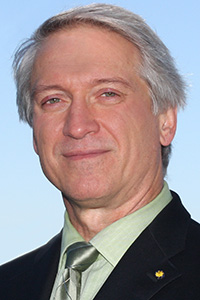Dr. Stephen Hinshaw received his A.B. from Harvard (summa cum laude) in 1974 and his Ph.D. in clinical psychology from UCLA in 1983. He completed his postdoctoral fellowship at the Langley Porter Institute of the University of California, San Francisco, in 1985. His scholarship focuses on developmental psychopathology, multimodal treatment strategies for youth with externalizing disorders (focusing on the family and peer-related processes that produce optimal change), and mental illness stigma. He has authored over 360 articles and chapters plus 12 books, including (with Richard Scheffler) The ADHD Explosion: Myths, Medication, Money, and Today’s Push for Performance (Oxford University Press, 2014), and (as sole author) Another Kind of Madness: A Journey through the Stigma and Hope of Mental Illness (St. Martin’s Press, 2017).
Dr. Hinshaw's research focuses on evidence-based assessment and treatment of youth with attention deficit hyperactivity disorder (ADHD) and related disruptive behaviors, the interplay of neurobiological vulnerability and environmental contexts (especially parenting practices and peer relationships) in explaining the onset and maintenance of such conditions, and the contribution of deficits in executive function to later maladjustment. Through a multilayered program of work he has altered the field’s fundamental perspective from a narrow focus on symptoms and heritability to a broader view of context, development, and competencies. He is the world’s leader in investigating girls and women with ADHD. His Berkeley Girls with ADHD Longitudinal Study (BGALS) is the largest such investigation. Among the key findings: the major risk for self-injury in girls with ADHD as they mature into adulthood, explained in part by factors like poor response inhibition, peer rejection, and early trauma.





